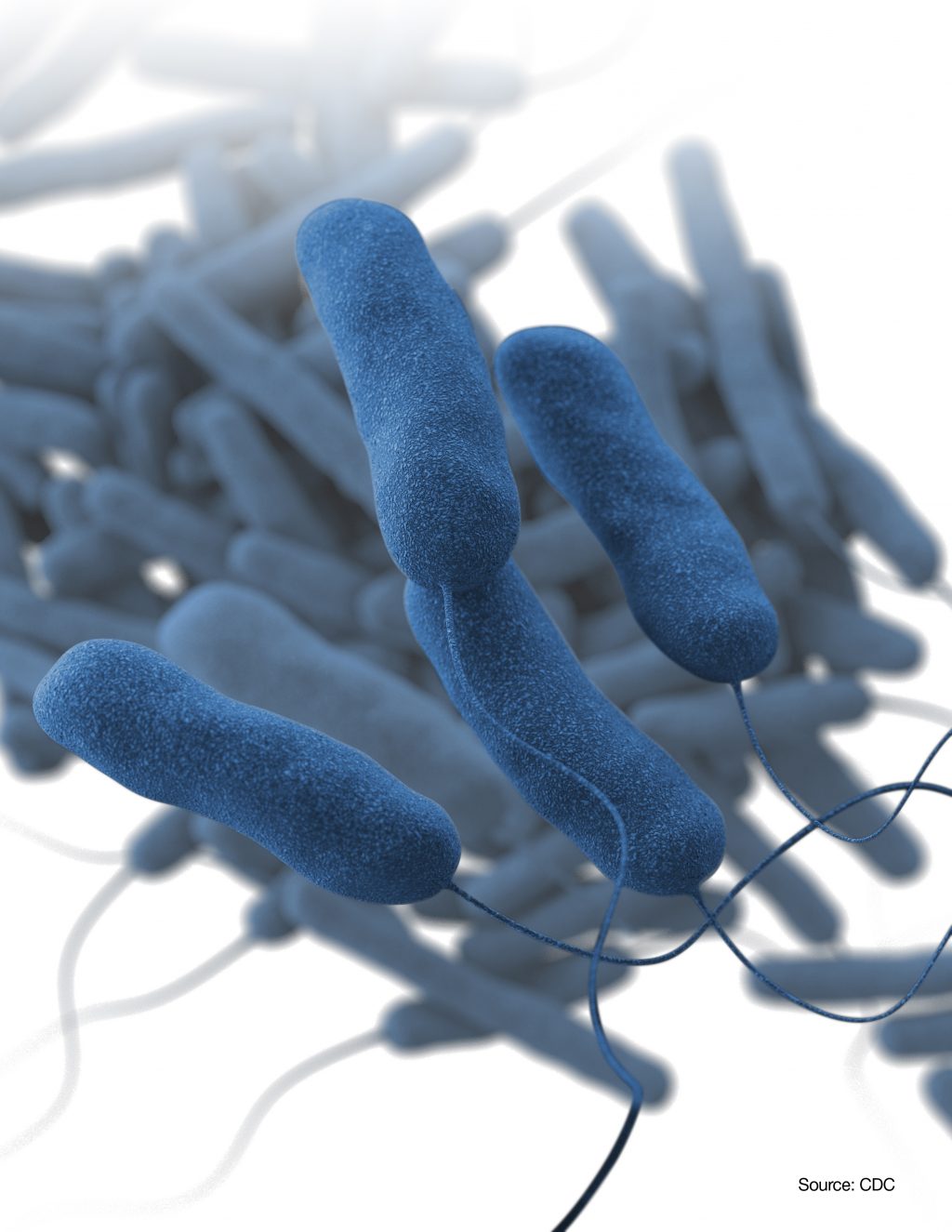The Flint Water Crisis’ Latest Victim Died Earlier This Year
The fateful switch from Detroit’s water system has been linked to the Legionnaires’ outbreak that killed 13 people. This doctor explains how.

This February, one of the most recent deaths caused by the Flint Water Crisis occurred: Jassmine McBride, who died 6 months after her 30th birthday from Legionnaires caused by the switch from Detroit’s water system to Flint River water.
Ninety people in the county contracted the disease during the switch and to date 13 have died.
Those deaths were caused by a bacteria called Legionella. Virginia Tech Professor Marc Edwards and his team recorded Legionella, pictured above, concentrations roughly seven times higher than normal which led to two outbreaks in Flint in 2014 and 2015.
Dr. Janet Stout, Director of Special Pathogens Laboratory, the nation’s leading Legionella testing lab and former consultant to McLaren Flint Hospital concluded in an affidavit to state heath regulators that the Flint water system was the likely source of the Legionnaires’ outbreak.
“The dramatic increase in the incidence of Legionnaires would not have occurred without the source water change,” says Dr. Stout.
This summer, WDET Book Club and Detroit Today are hosting a summer series featuring Dr. Mona Hanna-Attisha’s book “What the Eyes Don’t See.”
Dr. Stout joins Host and Producer Jake Neher on Detroit Today to explain how deadly this disease is and how the Flint Water Crisis caused the Legionnaires outbreaks.
Click the player above to hear Dr. Janet Stout talk about Legionnaires Disease.
WDET Book Club
WDET’s 2019 Book Club is hosting a Summer Series featuring her Dr. Mona Hanna Attisha’s book, “What the Eyes Don’t See.” Dr. Attisha is a Flint pediatrician from Hurley Medical, who first brought public attention to the discovery of lead-tainted water, which led to the poisoning of Flint children.
As part of the Book Club, WDET’s Detroit Today is traveling across Southeast Michigan discussing water infrastructure, environmental toxins and the health of waterways. Stephen Henderson is also talking about these issues on the air.
You can join us in that discussion. Read the book and engage with us online, on the radio and at events throughout the region. Here’s how:
Online: Join The WDET Book Club on Facebook where we will post articles and discussion topics throughout the summer. We’ll also invite guests to participate in targeted discussions you can engage in throughout the next couple of months.
On the radio Listen to 101.9 WDET! We’ll have interviews and conversations about Flint then and now, and more conversations about water quality, and trust in government during Detroit Today. You can listen to them on the radio, on demand and on the Detroit Today Podcast.
Follow us on Twitter: Follow hashtag Detroit Today where we will tweet our events, our guests and information about issues of safe water in our sinks, streams and lakes..
Events: We will travel to libraries around the region with guests who played a role in the book. They will tell their own stories about their involvement in the Flint water crisis, and we’ll invite local experts to talk about issues affecting our water in each community.
